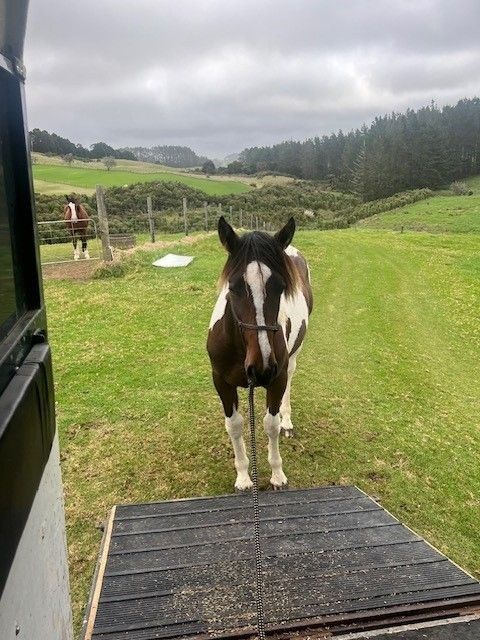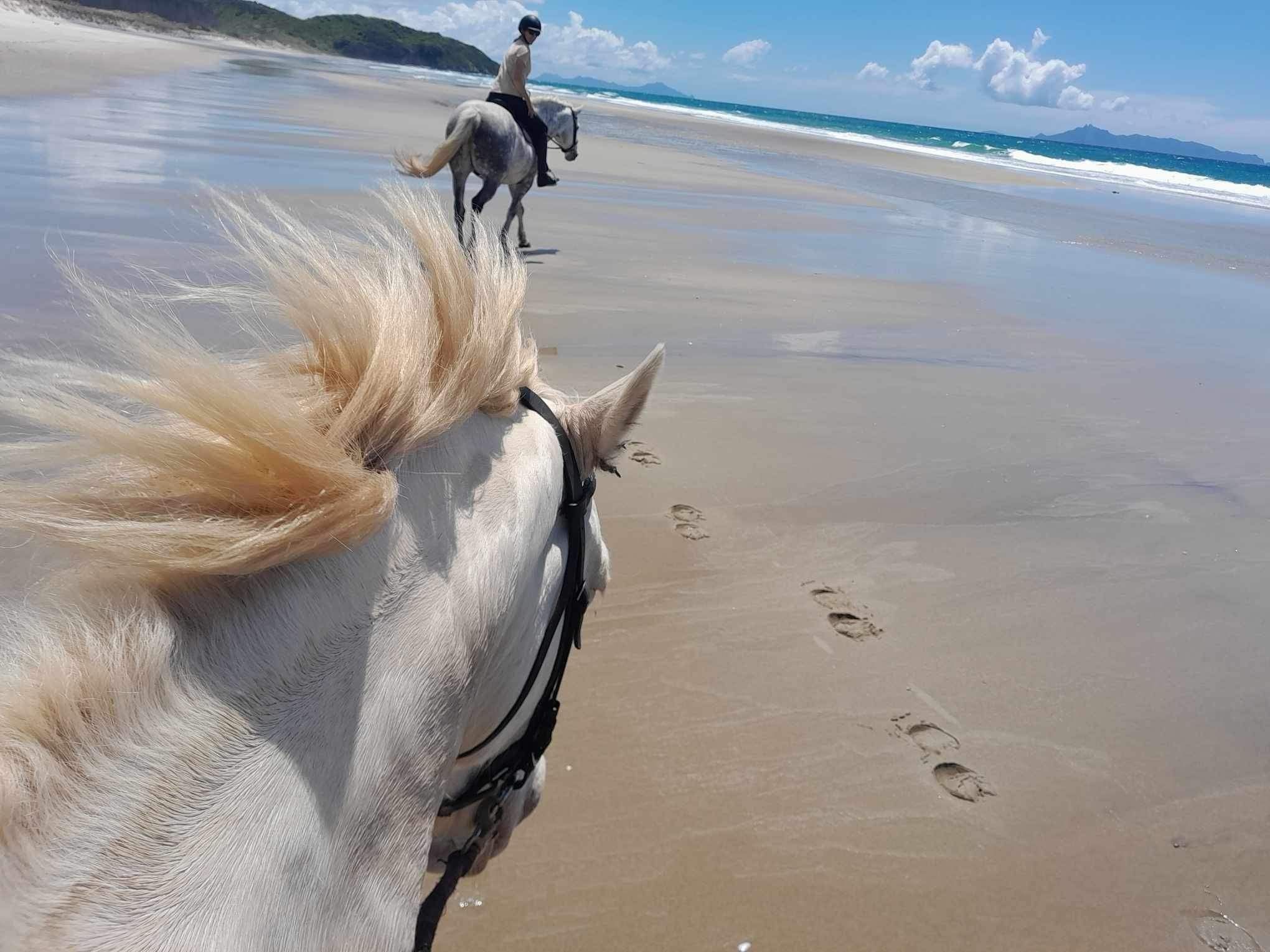Training
Training is an essential part of horse ownership, ensuring that horses are well-mannered, safe to handle, and mentally stimulated. At Rodney Animal Rescue, we advocate for force-free, relationship-focused training that builds trust and confidence between horse and handler. A calm, confident horse is the safest to handle, making daily care, vet visits, and farrier appointments easier for everyone involved.

The Importance of Groundwork
Horses should be trained to be respectful and responsive on the ground before being ridden. Basic groundwork helps establish trust, boundaries, and safety.
Leading calmly without pulling or lagging behind.
Backing up and yielding to pressure to respect personal space.
Standing quietly for handling, grooming, and tacking up.
Loading into a float/truck safely and confidently.
Desensitisation to new objects, sounds, and environments to reduce nervousness.
Training for Mental Stimulation
Training isn't just about control and safety, it also provides mental stimulation. Horses that lack training or work often become bored and develop behavioural issues. Short, positive sessions give them a purpose and strengthen the human-horse bond.
Liberty work and groundwork exercises engage the horse's mind.
Obstacle training encourages problem-solving and confidence.
Varied environments help prevent nervousness in new situations.
Safe Handling for Health & Well-being
Proper training ensures horses can be safely handled for veterinary care, worming, farrier visits, and dentistry. Without basic training, these routine tasks become stressful for both the horse and the handler.
Teach the horse to stand quietly for examinations.
Train them to lift their feet willingly for farrier visits.
Ensure they accept worming syringes and oral medications.
Introduce the vet and new procedures in a calm, positive manner.
Riding Within Your Ability & Means
For those who wish to ride, it is crucial to stay within your skill level and seek professional guidance when needed.
Work with a qualified trainer who shares your training philosophy.
Never rush the process - some horses need months or years to transition from groundwork to riding.
Use safe, well-maintained tack that fits properly to avoid discomfort or injury.
Always wear a helmet when riding and consider wearing one when handling young or difficult horses on the ground.
Professional Guidance & Ethical Training
Not all trainers use ethical, relationship-based methods. When choosing a trainer:
Look for someone who prioritises the horse's well-being.
Avoid forceful, fear-based techniques.
Ensure the trainer provides a safe learning environment for both horse and rider.
Trust your instincts - if something doesn’t feel right, it probably isn’t.
Don't be afraid to end a session if you are not comfortable with how the trainer is approaching you or your horse.
A well-trained horse is a happy, safe, and confident partner. Investing time in groundwork, mental stimulation, and ethical training ensures your horse is easy to handle and prepared for all aspects of care. Whether on the ground or under saddle, training should be a positive, trust-building experience for both horse and handler.
Note: This information is intended as a general guide. Always consult with a professional for advice tailored to your horse's individual needs.

If you need more support and would like assistance from a qualified professional, we are here to help. The Rodney Animal Rescue Education Fund is available to help new horse owners, particularly those who have taken on an Off-the-track-Thoroughbred, and feel they are out of their depth or need assistance to ensure your new equine friend has all their needs met.
Learn more about the RAR Education Fund!
